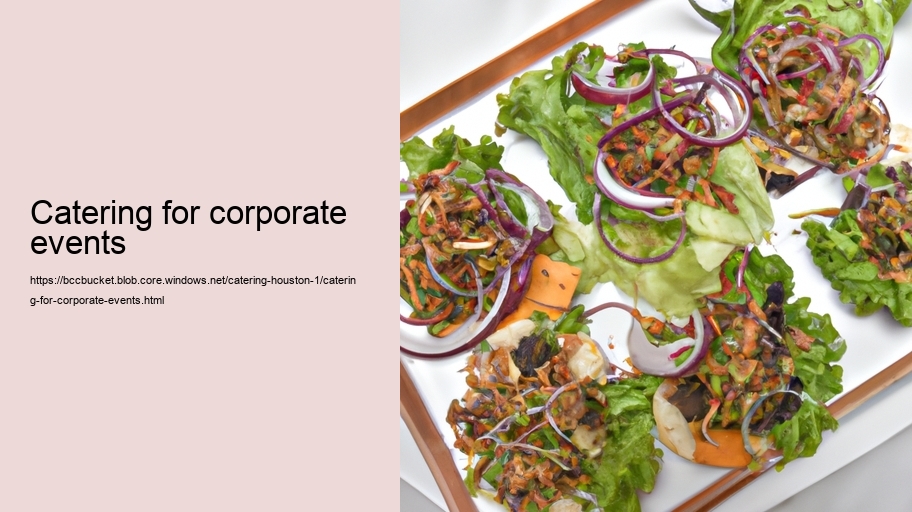Catering for corporate events is an essential aspect of the event planning and hospitality industry. It is a service that not only provides food and beverages to attendees but also contributes significantly to the overall experience and success of a corporate gathering. In this essay, we will delve into various facets of catering for corporate events, including menu customization, dietary considerations, presentation style, logistics, and how these elements coalesce to create memorable occasions for businesses.
Firstly, the cornerstone of any successful catering endeavor lies in understanding the unique needs and preferences of the client. Corporate events can range from casual luncheons to formal galas; therefore, it's crucial that caterers are adaptable and ready to tailor their offerings accordingly. Menu customization allows clients to align the food served with the theme or purpose of their event - be it a product launch requiring innovative and trendy bites or an annual meeting demanding classic gourmet selections.
Dietary considerations are another critical component that cannot be overlooked. With increasing awareness of food allergies, intolerances, and personal dietary choices such as vegetarianism or veganism, caterers must exhibit flexibility in providing alternative options ensuring all guests have enjoyable meals without compromising on taste or quality. This level of attentiveness promotes inclusivity within diverse groups at corporate functions.
Presentation style is equally important as it sets the tone for the event. A well-thought-out setup can elevate simple dishes to extraordinary levels through creative plating techniques or interactive buffet stations which engage attendees. Caterers often work closely with event planners to decide whether a sit-down dinner suits the formality of an occasion better than a cocktail reception might; they ensure that serving methods are both functional and stylish.
Logistics is where skill truly comes into play – managing timing, portion control, temperature maintenance during transportation (for offsite events), staff coordination, tableware rentals among other details require meticulous organization. The ability to strategize effectively can make all the difference in delivering seamless service amidst tight schedules commonly associated with corporate environments.
Furthermore, sustainability has become increasingly significant in catering practices due to growing environmental consciousness within corporations seeking greener solutions for their events. Catering companies now offer local sourcing options for ingredients reducing carbon footprint alongside recyclable or biodegradable serveware contributing towards eco-friendly initiatives much appreciated by socially responsible businesses.
In conclusion, catering for corporate events involves much more than just preparing food; it encompasses understanding client objectives tailoring menus offering diverse dietary accommodations presenting food attractively handling logistical challenges all while adhering to sustainable practices when possible. An exceptional caterer recognizes these complexities and prioritizes customer satisfaction through impeccable execution every step along way thus playing pivotal role transforming standard business gatherings into experiences that linger positively minds participants long after last morsel enjoyed – true mark excellence this dynamic field hospitality management.
